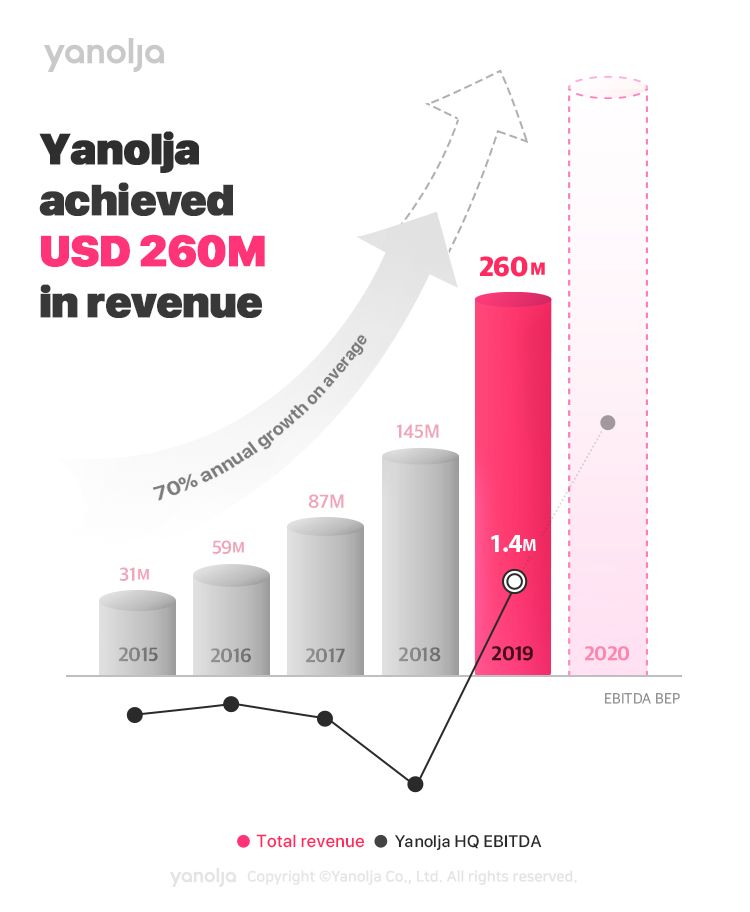AsiaTechDaily – Asia's Leading Tech and Startup Media Platform

Korean Traveltech Unicorn Yanolja Remains Bullish Despite Covid-19
South Korean travel technology (traveltech) unicorn Yanolja foresees a robust and sustainable growth momentum in 2020 even as the Covid-19 pandemic continues to batter the industry where it operates.
In a statement, the Korean unicorn said it would build a robust and sustainable growth momentum through active investment into R&D capability this year despite the Covid-19 global pandemic.
“Based on this, Yanolja will leap forward to become a global No.1 hospitality company and strengthen our unrivaled position as a Super App in travel,” said LEE Su Jin, Yanolja’s CEO & Founder.
The optimistic forecast of Yanolja for this year is based on its double-digit growth last year and in the past five years.
In a statement, the company said it achieved $260 million in total revenue from its domestic and global businesses, a 78.8-percent year-on-year growth. The revenue includes $234 million from Korea and $26 million from overseas.
Last year’s figures showed that the company is maintaining a high annual growth rate of over 70 percent for the past five years. In particular, its fourth-quarter revenue in 2019 reached $79 million, up 78.9 percent from the same period last year.

Yanolja attributed the upturn in its overall performance to the strong growth of the accommodation, leisure, and activity booking platform business in and outside of Korea.
The global hotel solutions business it acquired or invested in, including eZee Technosys and ZEN Rooms, also contributed to the success, the company said.
This year, Yanolja aims to achieve an over two-fold growth of its global business to generate 50 percent of its total revenue in the next five years.
Yanolja rose to a unicorn status after securing US$200 million from Singapore sovereign wealth fund GIC Pte Ltd and Booking Holdings Inc, a US firm that operates in the hotel booking space.
Yanolja, which means “Hey, let’s play!” started as an online search portal for love hotels, guest house rooms, pensions, and small hotels. The company, however, sets its eyes on global expansion as it considers the South Korean market not big enough for the company to survive and scale-up.




